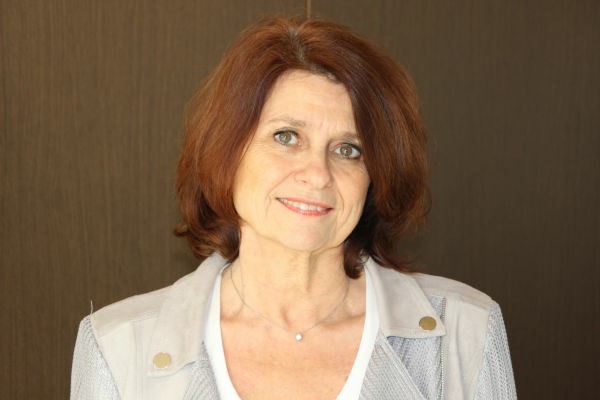Encouraging daytime working, for greater social responsibility in our cleaning services
Daytime working means that cleaners can be on site during the hours when customers are present.
Onet contributes to this socially responsible approach by offering its customers the opportunity to set up this type of organization on their site, so that everyone involved can reap the benefits.
CSR benefits not only for the cleaning contractor and its teams, but also for the customer and end-user.
Discover this initiative in pictures, with testimonials from our customer, the Ecole nationale d'administration pénitentiaire, and our teams.
- - Onet
What do we mean by " daytime working "?
Most cleaning services are provided on a staggered schedule, either early in the morning or at the end of the day. The switch to daytime working allows cleaning staff to work during traditional working hours, i.e. when customers are present, at "office hours" that are compatible with family and social life.
This organization of work allows us to reduce part-time work and split shifts by encouraging our employees to work continuously throughout the day.
According to a BVA survey by Le Monde de la Propreté published in 2017, 75% of French people are in favor of daytime intervention in their workplace.
Through the testimonials of our customer, the Ecole nationale d'administration pénitentiaire, and our teams, discover the benefits of daytime working:
A responsible approach with many benefits
At the end of the 2000s, the cleaning sector began to raise awareness of daytime working. In 2009, the Fédération des Entreprises de Propreté included the development of daytime/continuous working among the 51 actions of its sustainable development program.
Convinced that this commitment contributes to enhancing the value of the cleaning profession by changing the way occupants look at it, and promoting recognition of the work carried out by professionals in the sector, we offer our customers the opportunity to set up this type of organization on their site, so that everyone involved can reap the benefits.
As Serge Loubet, our Branch Manager at Onet Cleaning and Associated Services in Agen, puts it, "The Onet Group wants to become and to be a force for proposal to see our customers and to take steps with them to improve the quality of work and the quality of life of our employees."
The advantages of daytime working are numerous, not only for the cleaning contractor and his teams, but also for the customer and his end-user.
In fact, by optimizing our agents' interventions, we can adjust our service to the pace of activity on our customer's site. Benoit Theuillon, Head of the Reception, Accommodation and Security Department at the Ecole nationale d'administration pénitentiaire, comments: "From a practical point of view, it's essentially a question of responsiveness. And from a social point of view, it's clearly an improvement in staff living conditions.
Benoit Theuillon also emphasizes the fact that by applying daytime working, " links are created, discussions, exchanges, sharing and getting to know each other", which is established "between two worlds that don't know each other at all, and which can rub shoulders in a meaningful way".
Noura Zegar, Team Leader at Onet Propreté et Services in Agen confirms : "Before, we were alone, we didn't see anyone. Now it's different. You see the staff, you're in contact with them. There's a big difference. I'd rather be seen than not seen."
This establishes a genuine relationship of trust between those who provide the service (the cleaners) and those who benefit from it (the customer's users).
Social cohesion is developed. As Serge Loubet points out, "There's coactivity. So this activity necessarily implies knowledge. They now know who's working in their office. It creates a sense of proximity, and it's a win-win situation.
This approach also helps to reduce environmental impact, for example, by enabling cleaning operatives to take advantage of public transport or by limiting the number of journeys they make, thanks in particular to the grouping of operatives' working hours. As our cleaner Ounessa Bouakkaz points out "For me, it's completely changed because I live in the countryside and I used to make the journey 4 times. Now I only have to do it 2 times.

the environmental and economic benefits are complementary to the social benefits. For example, greenhouse gas emissions are reduced thanks to the reduction in the frequency of commuting between home and work and/or the possibility of using public transport. In some cases, a reduction in energy consumption (heating, lighting) can also be observed, as cleaning operatives work the same hours as the occupants of a site.
Laurence Acerbo, Onet Responsible Development Director
Benoit Theuillon concludes "It's real social progress, with ecological and economic benefits for the company, and an exemplary approach to its operations that is truly in line with the evolution of society.
Together, we can all help to move the company forward through responsible purchasing, by opting for daytime working, for example.
A look back at our participation with FEP CSO
Onet is taking part in a regional working group, initiated by the Fédération des Entreprises de Propreté Centre et Sud-Ouest, on daytime working in cleaning services.
On October 5, 2021, our South-West Regional Manager, Arnaud Pradel, will join us in presenting the benefits of this co-activity to private and public sector cleaning buyers and customers.
On the same day, Onet also signed the Responsible Purchasing Charter to develop daytime cleaning services.
A commitment that formalizes what has already been established and signed with numerous customers in the South-West region.




